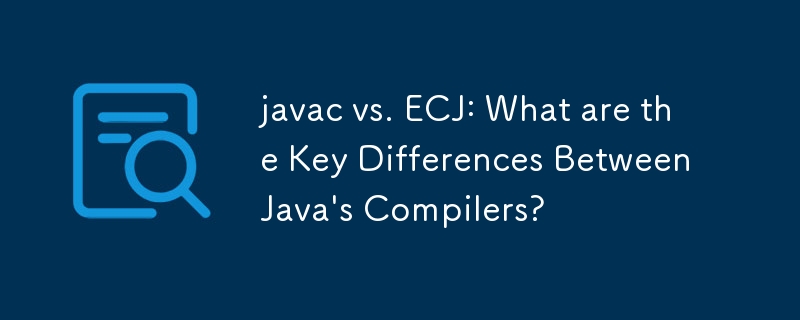

Understanding the Differences Between Java Compilers: javac and Eclipse Compiler
While Eclipse is a popular Java development environment, its compiler, known as Eclipse Compiler for Java (ECJ), is distinct from javac, the default compiler included with the Java Development Kit (JDK).
Separate Compilers
Eclipse's compiler is not merely a wrapper for javac. ECJ is an independent compiler developed and maintained by Eclipse. Therefore, Eclipse chose to create its own compiler rather than simply relying on the existing javac program.
Key Differences
One significant distinction between ECJ and javac lies in error handling. ECJ permits the execution of code with compilation errors if those specific code blocks are not invoked during runtime. In such cases, no exception is thrown. Conversely, javac treats compilation errors strictly, preventing code execution due to errors.
Moreover, ECJ facilitates incremental builds within the Eclipse IDE. This streamlined approach compiles code as soon as it is entered, enabling a more efficient and responsive coding experience.
Advantages of ECJ
Specific scenarios favor the use of ECJ over javac:
Conclusion
Eclipse's decision to create its own compiler stems from a desire for customization and optimization. By developing ECJ independently, Eclipse can cater to specific needs within its IDE, offering distinct advantages such as incremental builds and flexible error handling.
The above is the detailed content of javac vs. ECJ: What are the Key Differences Between Java's Compilers?. For more information, please follow other related articles on the PHP Chinese website!




